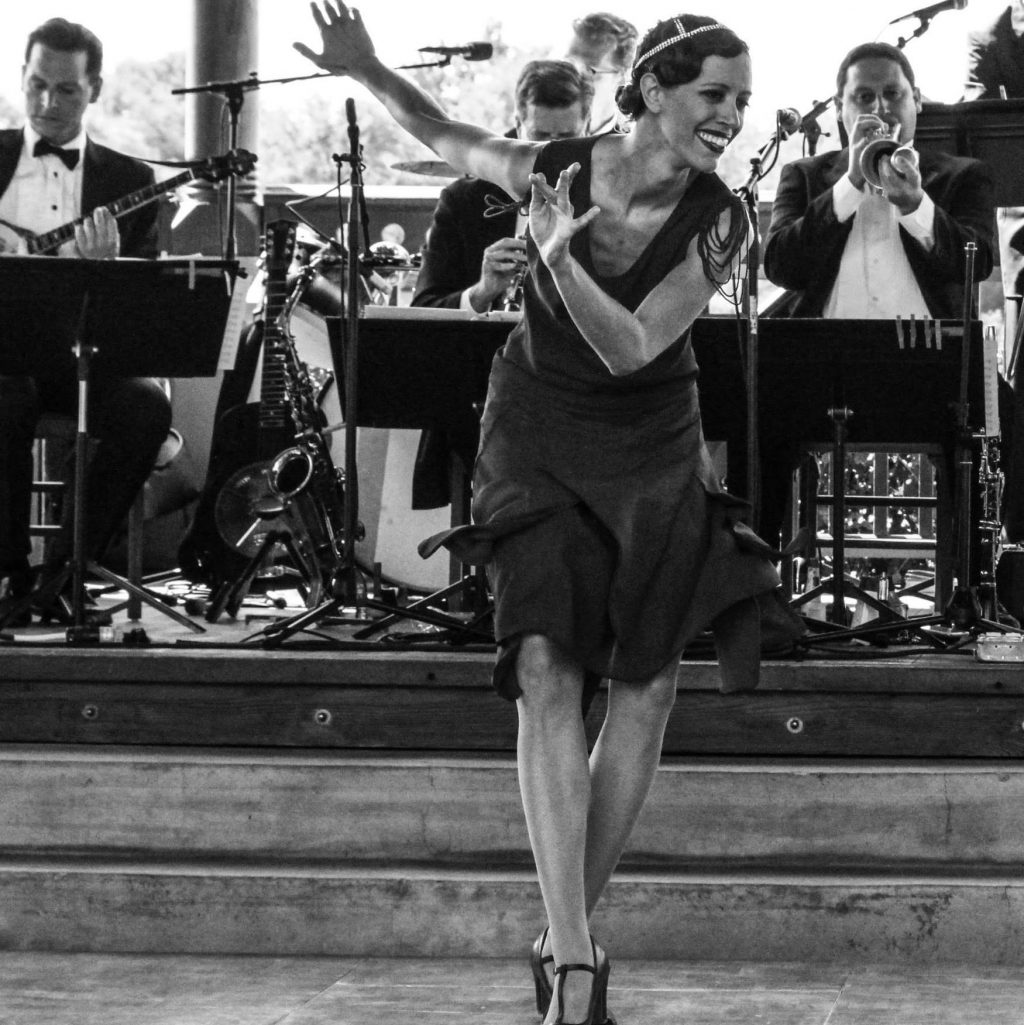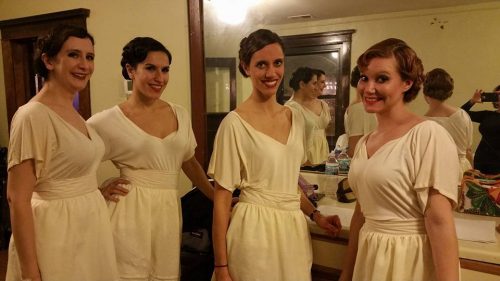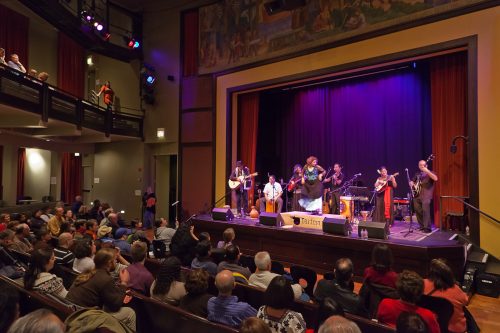
Internships: An Interview with Chelsea Dvorchak (MAM ’17)
Internships seem to be the single biggest concern among applicants. Rightfully so, there is an advantage associated with having the experience and connections once graduation comes around. With that in mind, I interviewed one of my classmates, Chelsea Dvorchak, about her experience this semester in an internship.
Chelsea is also a second-year graduate student in the Master of Arts Management program at Columbia College Chicago. Focused on the swing/jazz dance scene, her plans are to stay active in the non-profit world and support dance education throughout Chicago.

Chelsea and Chicago Chorus Girls
What internships have you had while in the MAM program? How did you find them?
Old Town School of Folk Music: Educational Programming; Chicago Humanities Festival: Marketing; and Hubbard Street Dance: Marketing. Overall I have enjoyed these internships because of the environment and the people. The staff care about what they do and are generally nice, interesting, mostly artistic people. My supervisors have been great–they foster open communication and check in to make sure I’m learning what I’m supposed to/want to learn. All of my positions have been in a quiet office setting, doing a lot of work on my own. However, I prefer a more bustling environment with more collaboration. In all internships, I have been included in meetings, which are interesting; however, I rarely found that I had something to contribute.

Tarima son perform at Old Town School of Folk Music
Did the internships meet your expectations?
For the most part, they did, I was able to do important work at OTS and at Hubbard Street. I helped with various marketing projects and conducting informational interviews with staff to get an overall understanding of how the entire administration functions. At the Humanities Festival, I started right in the middle of the planning for the fall festival; and felt that the marketing projects, especially press work, had already been started and rolling. I helped with small tasks here and there but did not really feel like my work was helping to actively promote the festival. At the beginning, there was some discussion of me helping to form partnerships in the community, but this never came to fruition.
Did your internships provide any insight into what you want to pursue after graduation?
Sort of, I learned that I would probably be happy at an arts nonprofit because they are mission-driven and the people really care about what they do. I also found that I don’t really enjoy the quiet office environment and learned that I want to hopefully pursue positions that are a bit more active or interactive.
What was balancing this obligation, classes, and other responsibilities like?
Balancing time was just fine. One thing that’s great about doing internships is that you get hands-on learning and complete credit within a defined number of hours each week. You do your work, on-site, in those hours and don’t have to worry about outside assignments. What is also great is being able to take part in events that the organizations host, to be a small part of the “behind-the-scenes” of some fascinating programming.
What 3 pieces of advice would you offer prospective students looking into taking internships through MAM.
- Find organizations that you believe in that you think would at least inform you as to whether or not you would want to work in that field, for that type of organization. I would also advise selecting different kinds of organizations and positions, to get a more varied experience. This is something I wish I had done from the beginning. Although I enjoyed my internships, I wish I had done at least one that was a bit different.
- Go in with a proactive attitude. I did this a little, but it’s the one thing I would have done better if I could go back. They will give you projects but it’s best to think beyond these and find projects that you can initiate and experiment with. Don’t be afraid to do this! An internship is a place to test things out before you’re actually on a payroll.
- Build relationships. These people will be your connections, references, and mentors. Find who you trust and admire and learn from them. Demonstrate your skills and identify what you want to improve and use them to help you do that. Ask them questions about their experience and the industry. There are many great leaders within the arts, and they will be your greatest resource! Maintain the relationships after leaving your internship.
